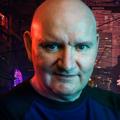Review of 'The Moon Is a Harsh Mistress' on 'Goodreads'
1 star
So irritating and painful, from the flimsy attempt at a unique future dialect to the stodgy plot to the smug didacticism of the hero-narrator, It was indeed a harsh mistress to digest this cardboard piece of cringy incelism. I read it for a bookclub, and out of loyalty to one of my favorite genres. Helas the best part was when it was over and I had this relief not unlike a giant bowel movement- a feat which left me with a Homerism- I cannot believe I hate the whole thing. The sexism, barf. The petty tirades of nonsensical libertarian garbage behind which lurks an endorsement of genocide and monarchy and misanthropy. Barf. The lack of descriptive writing, the flat characters, the meh forays into science (too much plodding engineering, not enough theoretical possibility for my taste). Barf













